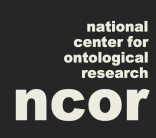While there is value just in formulating an ontology, that value is enhanced when the ontology is implemented into an information system. A formal ontology is capable of being used not only by people, but also by machines to enable automated interaction with an environment in a way that accords with the way people understand that environment.
The aims of formal ontology have intersected with the efforts to provide more useful semantics to internet resources. The result is that a number of Semantic Web technologies have been developed that together are capable of implementing formal ontology into information systems. Whether these technologies are used simply to publish an ontology on the internet, or whether they are used to create expert systems that automate information processing based on that ontology, Semantic Web technologies provide a powerful means of realizing the full benefits of formal ontology.
The World Wide Web Consortium (W3C) maintains the standards for Semantic Web technologies. See the links below for an introduction to the protocols and standards involved in these technologies, as well as database of tools and services that implement these standards.
